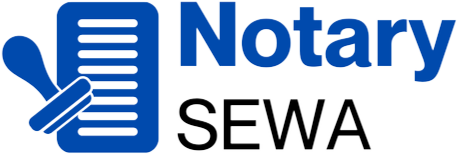Business contract notarization is essential in Nepal to verify identities, authenticate signatures, and prevent fraud. This article explains clearly how notarizing business contracts protects your business against document fraud. Gain actionable insights to ensure your business transactions are secure and legally binding.
What is Document Fraud in Business Contracts?
Document fraud involves forging, altering, or misrepresenting information on legal documents to deceive or defraud. Businesses frequently face significant risks if their sensitive contracts are not adequately protected against such fraud.
How Notarization Prevents Document Fraud
Business contract notarization involves authenticating signatures and verifying the identities of all parties involved. Here’s how notarization helps protect against fraud:
1. Identity Verification
- A notary checks valid identification documents such as citizenship certificates, passports, or driver’s licenses.
- Details are officially recorded, ensuring accountability.
2. Ensuring Genuine Signatures
- Parties must sign the documents in the notary’s presence.
- Signatures are voluntary and verified, reducing the risk of forgery or coercion.
3. Creating a Legal Record
- Notarization creates an official record recognized by Nepalese courts.
- Provides robust proof in legal disputes.
4. Deterring Fraudulent Intent
- Legal accountability from notarization deters potential fraudulent activity.
- Clarifies legal consequences, discouraging fraud attempts.
5. Protecting Document Integrity
- Notarized documents cannot be altered without invalidating them.
- The notary’s seal acts as a safeguard against unauthorized changes.
Legal Significance of Notarized Contracts in Nepal
Nepalese courts value notarized business contracts highly because:
- They provide clear evidence for dispute resolution.
- They meet the compliance standards set by the Nepal Law Commission.
- Courts readily enforce notarized agreements due to their authenticity.
Refer to guidelines from the Nepal Bar Council for more details.
Common Business Documents Requiring Notarization
Protect your business by notarizing essential documents:
- Partnership Agreements
- Lease and Rental Agreements
- Loan and Mortgage Agreements
- Employment Contracts
- Non-Disclosure Agreements (NDAs)
- Real Estate Contracts
Steps to Properly Notarize Business Contracts in Nepal
Follow these steps for effective notarization:
Step 1: Prepare Documents
- Compile and thoroughly review contracts for accuracy.
Step 2: Verify Identities
- Ensure all involved parties bring valid identification.
Step 3: Schedule Notary Appointment
- Choose reputable services like Notary Sewa.
Step 4: Sign in Notary’s Presence
- Sign clearly, ensuring all necessary parties and witnesses are present.
Step 5: Receive and Verify Notarized Documents
- Confirm the notary’s official seal and signature.
Common Mistakes to Avoid
Prevent common notarization errors by:
- Ensuring complete signatures and correct witness details.
- Using current and valid identification.
- Thoroughly reviewing all documents before notarization.
Advantages of Professional Notarization Services
Professional notarization services offer:
- Legal compliance with Nepalese standards.
- Expert fraud prevention advice.
- Secure and legally compliant documentation.
Explore related services for comprehensive protection:
- Affidavits and Sworn Statements
- Certification of Legal Documents
- Wills and Testament Notarization
- Powers of Attorney
International Considerations
For international business transactions:
- Consider additional certifications like Apostille or MOFA Attestation.
- Clearly understand international notarization standards.
Conclusion
Notarizing business contracts effectively protects your business from document fraud by verifying identities, authenticating signatures, and establishing legal accountability. Utilizing professional notarization services ensures secure, reliable, and legally compliant business documentation in Nepal.
